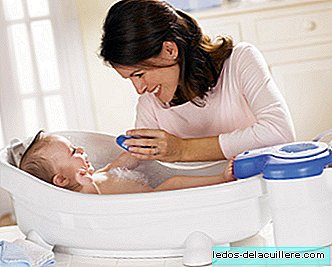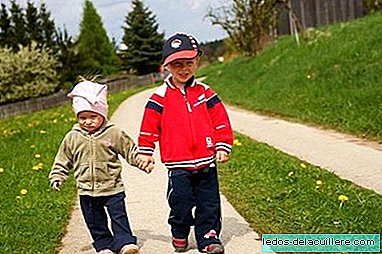
La Caixa presented yesterday the results of the study "Childhood and future: new realities, new challenges" in which it is observed that an equal family contributes to the well-being of children and, on the other hand, that in those homes where parents (dads) are involved little or nothing in raising children, children are more likely to have low emotional competence, lack of affection for the family and even more high obesity
Looking at the data from this study, we see that more than half (51%) of parents with children between 5 and 10 years old are very involved in raising their children, although only 7% could be compared to the level of mothers In other words, 93% of parents participate in the raising of children less than mothers do.
It is also observed in the study that there is currently a more egalitarian vision of the family than two decades ago (1990), when it was 42% of the parents of young children who expressed that the ideal was that the father and the mother could participate equally in the care of children, compared to the current 69%.
This 69% seems to be on track, since it is observed that the children of couples in which both parents are involved in parenting have better results in studies and suffer less stress at home (which are usually caused when workloads are poorly distributed).
Women change their employment status more
23% of women who have children under five have left work to take care of them, compared to 4.8% of parents who have chosen this route.
The cause is twofold. On the one hand families tend to follow the inertia of maternal leave, when the father works and the mother takes care of the baby and on the other hand the parents have a disadvantage when caring for babies, and we are not moms .

As much as we want, we have not gotten pregnant, we have not given birth and we do not have two breastfeeding breasts, so we are not mothers. The bond that a baby creates with his mother in the first months is usually stronger than the one he creates with dad and The easiest thing for babies is usually to stay with the person whose relationship is closest, that most of the time is the mother.
More and more children in the nursery
Another aspect that the study has valued is the care of children when the mother continues to work. 21% of households have the help of the grandmother on a daily basis and 43% choose to leave them in the nursery or in play centers, a figure that has increased compared to 20 years ago, logical if we take into account that now more mothers work .
The involvement of parents is key in the development of children
Returning to the topic at the top of this post, special emphasis is placed on the importance of stimulating children, of spending time with them and that is why the involvement of parents is key. The saying goes that "four eyes see more than two" and, when we talk about children, two parents provide more encouragement and contact than one.
It is understood when making such a statement that mothers already provide care and stimulation to their children, but it is observed that in homes where fathers are very involved in raising their children, Children have better emotional and social health.












